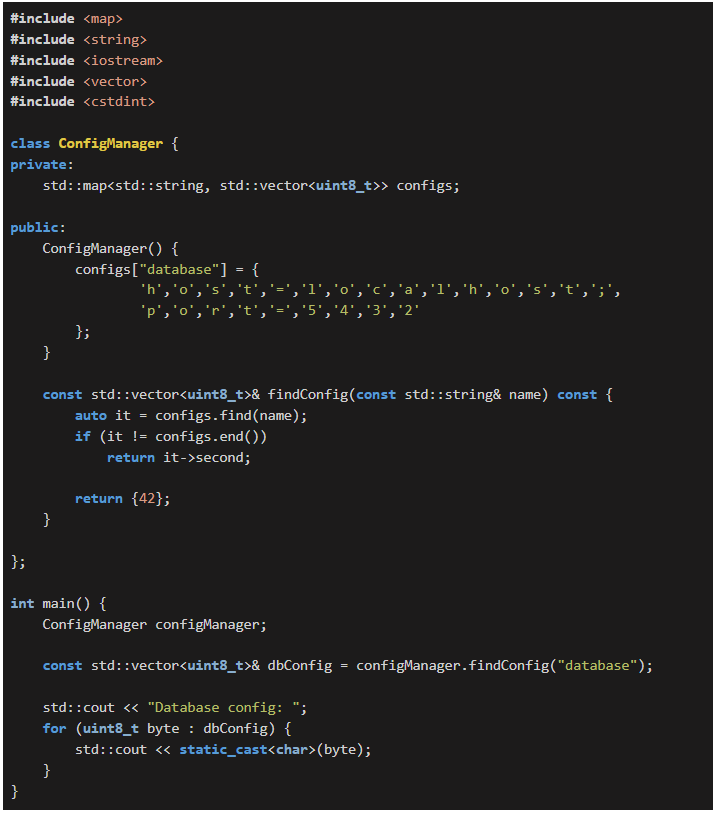A Brief and Incomplete Comparison of Memory Corruption Detection Tools -- Raymond Chen
 Memory diagnostic tools can be divided into runtime detection tools like Address Sanitizer (ASAN), Valgrind, and Application Verifier, and recording tools like rr and Time Travel Debugging (TTD). While runtime tools help catch memory errors as they occur, recording tools allow developers to trace memory modifications over time, making them a powerful combination for debugging complex issues.
Memory diagnostic tools can be divided into runtime detection tools like Address Sanitizer (ASAN), Valgrind, and Application Verifier, and recording tools like rr and Time Travel Debugging (TTD). While runtime tools help catch memory errors as they occur, recording tools allow developers to trace memory modifications over time, making them a powerful combination for debugging complex issues.
A Brief and Incomplete Comparison of Memory Corruption Detection Tools
by Raymond Chen
From the article:
I promised last time to do a comparison of memory diagnostic tools. We have runtime diagnostic tools Address Sanitizer (ASAN), Valgrind, and Application Verifier (AppVerifier, avrf), and we have recording tools rr, and Time Travel Debugging (TTD)
First, the runtime tools:
ASAN detects a lot more types of memory errors, but it requires that you recompile everything. This can be limiting if you suspect that the problem is coming from a component you cannot recompile (say because you aren’t set up to recompile it, or because you don’t have the source code). Valgrind and AppVerifier have the advantage that you can turn them on for a process without requiring a recompilation. That means that you can ask a customer to turn it on at their site, without having to deliver a custom build to them. This is even more important on Windows because you have no chance of giving them an ASAN-enabled version of, say, kernel32.dll.

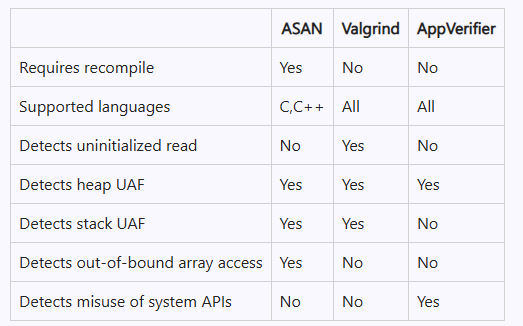
 Bjarne Stroustrup, the creator of C++, has outlined his vision for the language’s future in his article "21st Century C++," emphasizing the need for safer and more modern coding practices without abandoning its powerful legacy. His approach advocates for incremental improvements, such as guideline-enforcing profiles and enhanced type safety, ensuring C++ remains relevant in an era of heightened security and performance demands.
Bjarne Stroustrup, the creator of C++, has outlined his vision for the language’s future in his article "21st Century C++," emphasizing the need for safer and more modern coding practices without abandoning its powerful legacy. His approach advocates for incremental improvements, such as guideline-enforcing profiles and enhanced type safety, ensuring C++ remains relevant in an era of heightened security and performance demands. In today's post, I'll learn how modern C++ can influence the code you write for your embedded system. You will see code using up to C++23. The example I show you below circles around at least two questions I got various times from customers: What is consteval good for? What is that user-defined literal operator, and why should I care?
In today's post, I'll learn how modern C++ can influence the code you write for your embedded system. You will see code using up to C++23. The example I show you below circles around at least two questions I got various times from customers: What is consteval good for? What is that user-defined literal operator, and why should I care?
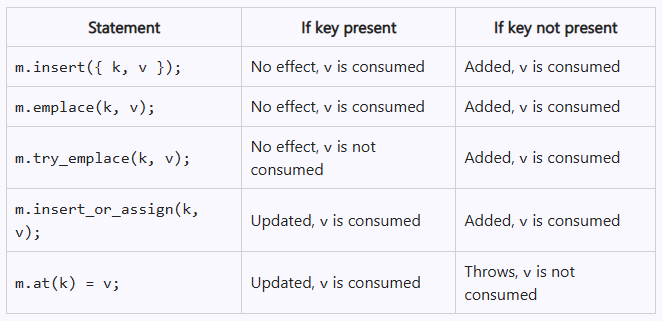
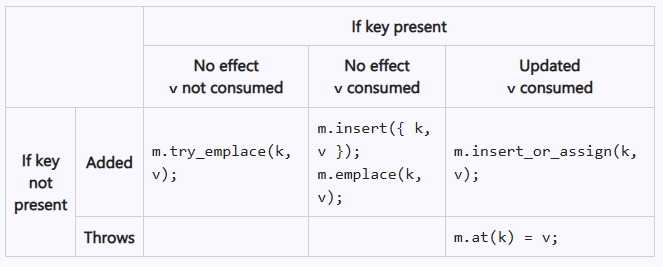
 C++26 introduces pack indexing as a core language feature, making it significantly easier to extract specific elements from parameter packs using a familiar subscript syntax. This improvement, proposed by Corentin Jabot and Pablo Halpern, eliminates the need for cumbersome workarounds like recursive templates or boolean expression tricks, providing a more intuitive and readable approach.
C++26 introduces pack indexing as a core language feature, making it significantly easier to extract specific elements from parameter packs using a familiar subscript syntax. This improvement, proposed by Corentin Jabot and Pablo Halpern, eliminates the need for cumbersome workarounds like recursive templates or boolean expression tricks, providing a more intuitive and readable approach.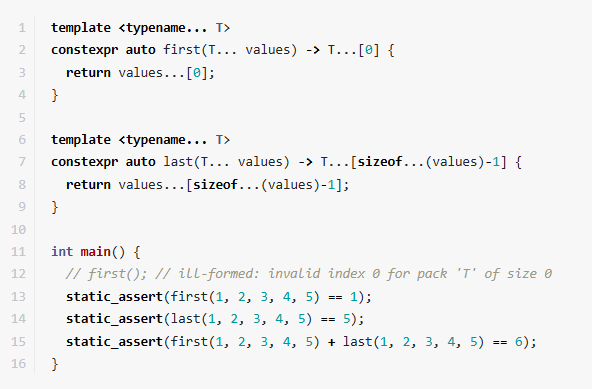
 In this blog post, we’ll explore ways to improve the safety of a simple configuration manager. We’ll handle common pitfalls like dangling references and excessive stack usage. Additionally, we’ll see how C++26 helps enforce safer coding practices with stricter diagnostics and improved handling of large objects.
In this blog post, we’ll explore ways to improve the safety of a simple configuration manager. We’ll handle common pitfalls like dangling references and excessive stack usage. Additionally, we’ll see how C++26 helps enforce safer coding practices with stricter diagnostics and improved handling of large objects.